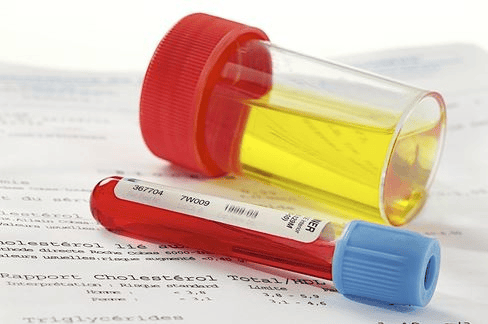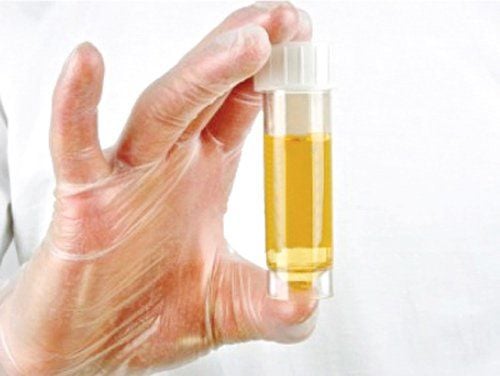This is an automatically translated article.
The early recognition of abnormal signs related to kidney dysfunction helps patients promptly examine, diagnose, detect and treat the disease effectively.1. Manifestations of kidney dysfunction
1.1. Urine changes Patients with renal dysfunction often have changes in their urination habits as well as urine composition. There are also symptoms of nocturia, or the sudden urge to urinate during the day. Water properties also change: Yellower than usual, sometimes turning orange, sometimes accompanied by an unpleasant odor.
1.2. Edema When the function of the kidneys is impaired, the glomerular filtration capacity is weakened, the excess substances are not eliminated, will accumulate inside the body. The result is edema, which is an accumulation of fluid in the cavities and interstitial spaces beneath the skin, causing certain areas of the body to swell. Fluid accumulation in organs and tissues can cause inflammation, such as in the feet, ankles, face, hands, and abdomen.
1.3. Acne When kidney dysfunction occurs, toxins are not cleared out, but stagnate in the blood, leading to the risk of acne formation, sometimes causing itching.
1.4. Low back pain Pain in the lower back or on one side of the spine can be a sign of kidney dysfunction. Sometimes this symptom is very easy to confuse with muscle pain, but it can be a warning sign of polycystic kidney disease or kidney stones.

Biểu hiện đau vùng thắt lưng ở người bị rối loạn chức năng thận
1.5. Nausea, vomiting Symptoms of nausea and vomiting can be caused by many different causes, but it is not excluded the possibility of kidney disease, especially when accompanied by other signs such as low back pain and edema. ... The kidneys are considered to be the organs responsible for eliminating waste products from the body through urine, so when the function of the kidneys is impaired, the ability will lead to feelings of nausea and vomiting. vomit.
1.6. Dry skin Patients with kidney dysfunction may show signs of dehydration, while the skin loses its natural moisture and becomes dry.
1.7. Dizziness, dizziness Patients with kidney failure or kidney infection sometimes show signs of anemia. Anemia leads to unmet need for oxygen supply for brain activities, causing dizziness, tinnitus, dizziness. Thus, if you often experience dizziness, it is likely that the health of your kidneys is unstable.
1.8. Loss of appetite If you are having an appetite and suddenly feel anorexia, not eating well, it is likely that the body is suffering from some disorder. However, it is not only kidney disorders that cause this symptom.
In summary, signs of kidney dysfunction can be well treated if detected early. On the contrary, when kidney disease is in the late stage, some related complications may occur, such as high blood pressure, infection... Therefore, if you notice abnormal signs as above. , do not hesitate to visit a doctor for proper diagnosis and timely treatment, avoiding unfortunate complications.

Xét nghiệm chẩn đoán rối loạn chức năng thận
2. L-FABP test detects the risk of kidney disease early
2.1. What is the L-FABP test? Early detection of the risk of kidney disease is extremely important, helping to prevent dangerous complications affecting health and life. Urine test L-FABP helps to evaluate kidney function, is indicated to conduct when the doctor suspects that the patient has renal dysfunction, in addition, it is also used to monitor kidney complications in subjects. Patients with diabetes and hypertension.
L-FABP is a protein that participates in the signaling pathway in the metabolism of long-chain fatty acids in the cytoplasm, thereby promoting the secretion of products of lipid peroxidation, contributing to the preservation of lipids. cell protection. Urinary L-FABP is excreted from the proximal renal tubule by oxidative stress or by acute microcirculatory disturbances, or tubular ischemia, before tissue damage occurs. In cases where the proximal tubule is ischemic or hypoxic, the level of L-FABP will be elevated, especially in the urine. Therefore, urine L-FABP is considered as a biomarker to predict the prognosis of renal function in renal diseases, including acute kidney injury, non-diabetic chronic kidney disease,...
The L-FABP test measures the level of L-FABP, if this value is high, it is likely that kidney damage has occurred, helping doctors diagnose chronic kidney disease with renal tubular dysfunction early. Diagnosis of acute tubular microcirculation disorders.
2.2. Subjects to apply Renal failure screening in the health examination program or mass screening if the doctor or the patient has a suspicion of kidney dysfunction. Screening for kidney failure in cases of diabetes, high blood pressure. Apply to patients with kidney diseases, including: acute and chronic glomerulonephritis, nephrolithiasis, pyelonephritis, polycystic kidney, horseshoe kidney. Monitoring patients before and after kidney transplant Patients hospitalized in the intensive care unit After surgery, patients with complications of sepsis Patients are prescribed X-rays using iodinated contrast agents. . Up to now, Vinmec Times City is the first medical facility in Vietnam to apply urine L-FABP test according to Japanese technology on a modern automatic AU 680 testing machine, giving quick and accurate results. .
Please dial HOTLINE for more information or register for an appointment HERE. Download MyVinmec app to make appointments faster and to manage your bookings easily.













